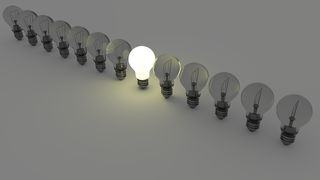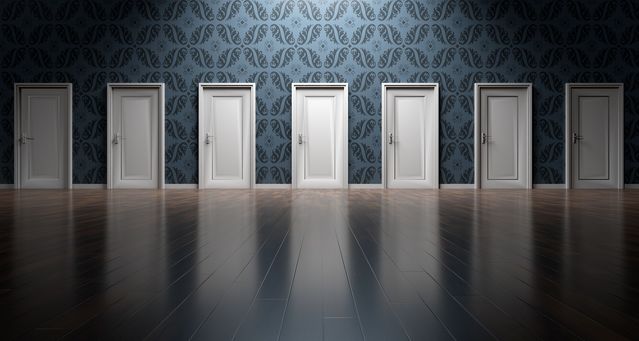Unconscious
Can Doing Nothing Unlock Your Decision-Making Superpowers?
The Dutch practice of Niksen may be the new "sleep on it" for your unconscious.
Posted July 30, 2019 Reviewed by Devon Frye
When I was in graduate school pursuing a degree in clinical psychology, my classmates and I sometimes replaced the expression "I'll sleep on it" with "I'll let my unconscious work it out." We thought we were oh-so-cool, using the psych lingo! But, as it turns out, we may have been onto something—and so too may be the Dutch.
What is Niksen?
Niksen is the buzz word of the season. The New York Times, Time magazine, The Guardian, and the Huffington Post have been racing to introduce us to the Dutch concept of doing nothing.

Simply put, niksen means to be idle or do something without a specific purpose, just for the joy of it. Like lounging at the beach or taking an aimless stroll. The key is to not actively aim to accomplish anything or pursue a goal. It is a radical idea to us proud members of the To-Do List Club.
Yet the cited benefits of nixing the to-do lists for a period of time are as numerous as they are intuitive: reducing stress and burnout, managing anxiety, boosting creativity, and even possibly improving your immune system. But could niksen also have some unconscious benefits, like helping you resolve an existential crisis or problem-solve about a new job? Turns out, yes, as an innovative theory of thought and decision-making argues. Being idle may prove to be a royal road to harnessing the power of our unconscious.
Unconscious Decision-Making: Yes, It is Real!
In a series of studies, conducted in the early 2000s, the Dutch (coincidence?) social psychologist Ap Dijksterhuis and his colleagues found that when people are given a period of time between having to choose one of four hypothetical apartments, they chose the objectively best one at a rate almost twice as high as the individuals asked to choose immediately. What's more, during that "idle" period of time, the participants in the first group did not consciously weigh the pros and cons; rather, they simply were distracted by other activities.
Next, the researchers also included a group of conscious thinkers, who were asked to think about all the features of the homes for a specified period of time. Again, the unconscious thinker group performed better in the decision-making task. Seems like letting the unconscious sort through the deluge of information was more beneficial than trying to consciously draw a pros and cons chart.
"Okay," I hear you say, "but this is about information—concrete facts. How about matters of the heart? Emotional decisions?" Thought you'd never ask! Do you remember that episode of "Friends" where Ross is trying to choose between Julie and Rachel? He lists all of the "negative" qualities of Rachel's that he dislikes, but when it comes to Julie, all he can say is "She's not Rachel." His conscious list appears to be at odds with what he already knows unconsciously.
More recent studies have found that unconscious decision-making surpasses its immediate or conscious counterparts in predictions based on expertise (e.g. in fans predicting the outcome of a soccer game or psychology students making a clinical diagnosis), attitude formation, judgments of justice/fairness, and even moral judgments.

The Unconscious-Thought Theory
Dijksterhuis and his colleagues have put forth what they call The Unconscious-Thought Theory (Dijksterhuis & Nordgren, 2006). They argue that unconscious decision-making may be more successful in judging complex issues due to the inherent differences in conscious and unconscious thought.
Conscious thought works serially (A leads to B leads to C, etc.) and can only process a small amount of information at a time. Therefore, it is better used in simple decision-making, when we are judging our options only by a few criteria.
Unconscious thought, on the other hand, processes information in a parallel fashion (I direct the interested reader to a whole body of literature on Parallel Distributed Processing). This means that it can handle large amounts of diverse information, including concrete facts, statistical data, physical features, emotional valence, and more. Also important is that unconscious thought appears to be able to more effectively rate the relative weight of all these seemingly different factors. It can, in essence, compare apples to oranges, and determine which one is better for you!
In Ross and Rachel's case, Ross may have judged Rachel as "spoiled," "ditzy," and "too into her looks"—all qualities he does not appreciate. However, in his decision whether or not to be with her, his unconscious mind is also weighing in factors like their history together, how he feels when he is with her, their friendship, memories from high school—you get the idea. It is also determining which factors matter more in his decision-making—that is, which ones carry more weight. This is a complex decision, one that a simple serial conscious thought will struggle with.
Can Niksen Help Access Your Unconscious Superpowers?
Back to us to-do listers. If you fall into the category of people whose inner self-critic is constantly reminding you that empty time is just that—empty, unproductive, and futile—listen up. It may very well be that niksen, or engaging in idle time, is anything but futile. It may be a way of putting your unconscious superpowers to work. If Dr. Dijksterhuis is right (and, by the way, he does credit some of these ideas to Freud, although Freud did not exactly engage in rigorous scientific research like Diksterhuis), unproductive time is, in fact, very productive.
This may seem counter-intuitive, but when faced with a tough and complex decision, you may be better off redirecting your attention in a completely different direction and letting your unconscious work behind the scenes.
I realize that this is a practice that may invoke anxiety, impatience, and even disbelief. Yet both theory and research show some promise when it comes to the value of letting go for the time being and allowing your mind the time and rest to more naturally arrive at a decision that feels true to you and your values. This could be deciding on a career change, a new home, or how to act in a difficult interpersonal situation.
Go on that stroll, doze off in that hammock, wander aimlessly. As the great J. R. R. Tolkien said, "Not all those who wander are lost." Some may just be letting their unconscious do its job!

References
Dijksterhuis, A., & Nordgren, L. F. (2006). A Theory of Unconscious Thought. Perspectives on Psychological Science, 1(2), 95–109. https://doi.org/10.1111/j.1745-6916.2006.00007.x




